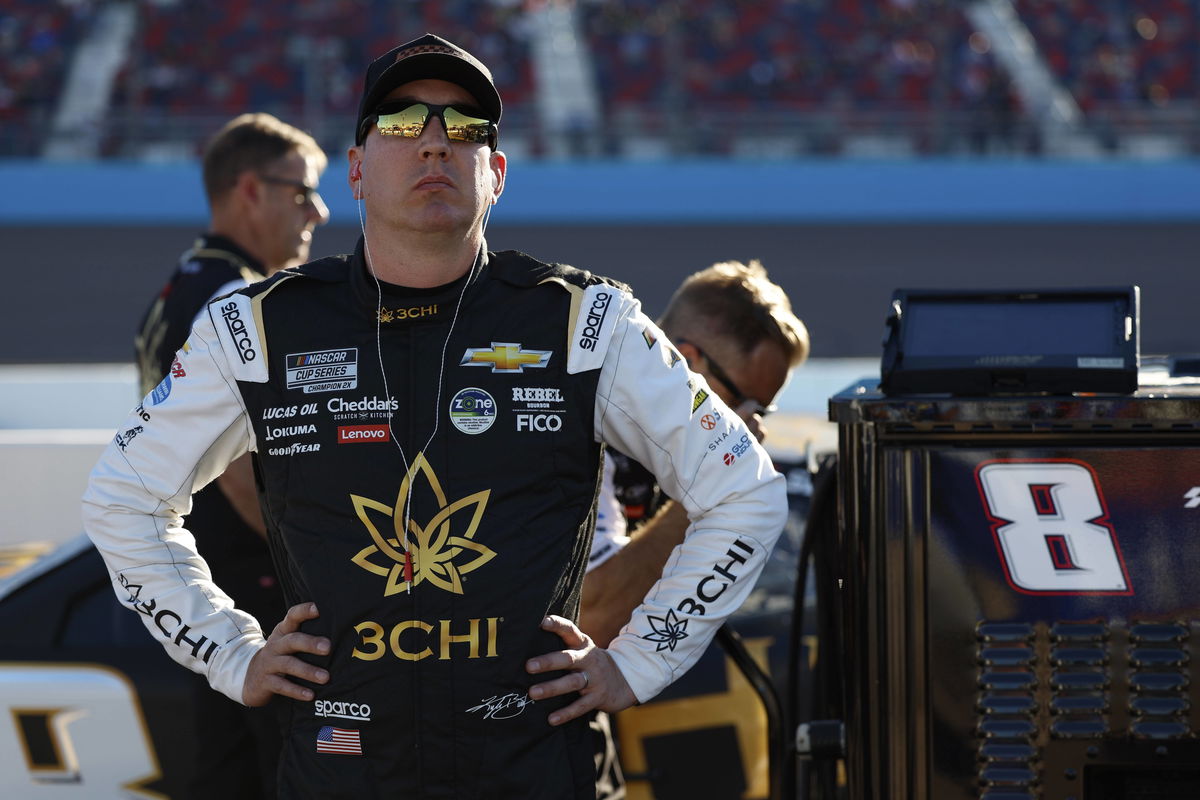
Imago
KYLE BUSCH 8 aus Las Vegas, NV macht sich bereit für das Qualifying zum NASCAR Cup Series Championship Race auf dem Phönix Raceway in Avondale, AZ, Avondale, Vereinigte Staaten von Amerika, Nordamerika KYLE BUSCH 8 of Las Vegas, NV gets ready to qualify for the NASCAR Cup Series Championship Race at Phoenix Raceway in Avondale, AZ, Avondale, United States of America Copyright: imageBROKER/StephenxArce/Grindst ibxiqx12959945.jpg Bitte beachten Sie die gesetzlichen Bestimmungen des deutschen Urheberrechtes hinsichtlich der Namensnennung des Fotografen im direkten Umfeld der Veröffentlichung

Imago
KYLE BUSCH 8 aus Las Vegas, NV macht sich bereit für das Qualifying zum NASCAR Cup Series Championship Race auf dem Phönix Raceway in Avondale, AZ, Avondale, Vereinigte Staaten von Amerika, Nordamerika KYLE BUSCH 8 of Las Vegas, NV gets ready to qualify for the NASCAR Cup Series Championship Race at Phoenix Raceway in Avondale, AZ, Avondale, United States of America Copyright: imageBROKER/StephenxArce/Grindst ibxiqx12959945.jpg Bitte beachten Sie die gesetzlichen Bestimmungen des deutschen Urheberrechtes hinsichtlich der Namensnennung des Fotografen im direkten Umfeld der Veröffentlichung
The news sent shockwaves. When Kyle Busch announced his move to Richard Childress Racing in 2022, NASCAR experienced a seismic shift. After all, ‘Rowdy’ had been the face of Joe Gibbs Racing for nearly 15 years at that point.
Watch What’s Trending Now!
Had it not been for the sponsorship troubles, the move wouldn’t have been possible. Naturally, as a two-time Cup Series winner, the expectations were high for Busch when he switched to the No. 8 team, with many thinking that RCR’s rich history would help the driver get back on top after a few years of lacklustre results. Fast forward to the present day, and that optimism has largely worn off.
Results have been hard to come by for Kyle Busch at Richard Childress Racing, with just three wins in the No. 8 Chevy in nearly 100 races. Sure, there have been flashes of potential, but not the kind of return to form many expected. And while many have blamed Richard Childress Racing for Busch’s ‘downfall’ in recent years, that story is far more complicated.
ADVERTISEMENT
His struggles didn’t start with the No. 8 team, but his final few years at Joe Gibbs Racing.
The numbers tell a different story, one that you don’t know!
Kyle Busch built his reputation at Joe Gibbs Racing, securing 56 Cup Series wins while driving the No. 18 Toyota as well as both his championships. Even when he was not competing for titles, ‘Rowdy’ was showing great consistency on the track, finishing fourth or higher at the end of the year a staggering six times. But something changed after 2019.
ADVERTISEMENT
Just a year after he won the championship in 2019, Busch ended the season in 8th place, his worst Cup Series finish since 2014. The results didn’t improve the following season, as the racer ended up 9th, followed by a disappointing 13th place in 2022, which was his final year at Joe Gibbs Racing.
That season was particularly disappointing, as he recorded his fewest top-five finishes since becoming a full-time driver and had seven DNFs. While he did win at Bristol, his playoff run ended before it even began, sparking rumors about his downfall.
ADVERTISEMENT
But his move to Richard Childress Racing hinted at a potential rebound.
Busch won three races in 2023, tying his best single-season tally since 2019. But the success was short-lived, as he went winless the following year, finished 20th in points, and missed out on the playoffs altogether. Rowdy’s struggles continued in 2025 with a poor 34th-place finish at the Daytona 500, followed by a promising run at Atlanta and laps led at Circuit of the Americas.
ADVERTISEMENT
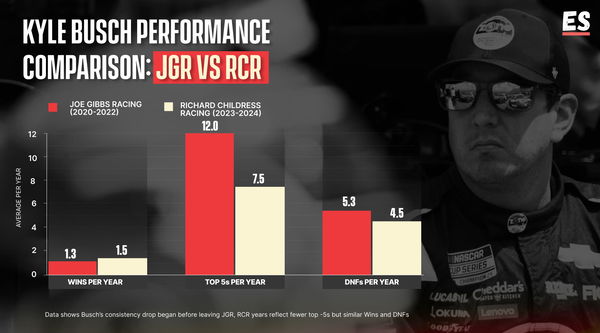
And, now this inconsistency mirrors his performances during his final years at Joe Gibbs Racing. Sure, the No. 8 team will take some blame for his results, and the racer has been downright unlucky at times. But that still doesn’t explain how Austin Dillon, using the same equipment, has won at Richmond Raceway twice in the last two years, while Rowdy, for all his experience and talent, has remained winless.
ADVERTISEMENT
Richard Childress Racing might not have the same resources as Hendrick Motorsports or Joe Gibbs Racing, but if the numbers are anything to go by, Busch’s downfall isn’t just down to his team.
Top Stories
NASCAR Executive Issues Clarification After Steve O’Donnell Ignores Fans’ Next Big Demand
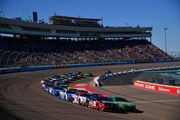
Tony Stewart Opens the Door as Kaulig Insider Fuels Speculation Around RAM’s Expanding NASCAR Return
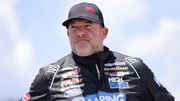
Brad Keselowski & Co. Ignites Daytona Buzz With Cryptic Greg Biffle Tease as Fans Beg for a Throwback Moment
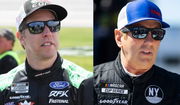
NASCAR Fans Question Teresa Earnhardt’s DEI Possessions as Dale Sr’s $14M Private Jet Surfaces
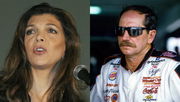
NASCAR Rumors: Brad Keselowski To Cut Ties With Ford for New Manufacturer
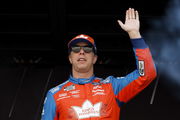
Could it be Kyle Busch’s driving style?
A lot has been said about the Next-Gen car ever since it was introduced before the 2022 season. But for a veteran driver like Kyle Busch, it has been a hurdle to adapt to the new vehicle.
ADVERTISEMENT
Over the years, Rowdy has achieved success on the racetrack by pushing his car to the limit, relying on intuition, and taking risks others wouldn’t dare to attempt. But the new car rewards restraint and precision more than raw feel, which doesn’t suit Busch’s style of racing.
Surprisingly, he has even admitted he’s running out of ideas when it comes to extracting performance out of the Next-Gen car. “I’m no engineer. All the nuances of this car, I’ve figured out a few over the last few years, but it’s not as much as I once knew that I could setup the old cars.”
And, with these strong claims, it looks like the 40-year-old has taken a backseat when it comes to providing feedback on the new vehicle, as the standardized parts limit the amount of adjustment teams can make.
ADVERTISEMENT
If we look back, one of Kyle Busch’s strengths has been his ability to anticipate how the car will perform on the racetrack. But the Next-Gen car has undermined what was once his greatest asset. The technical limitations of the vehicle, poor short track and road course package, its spec chassis, diffuser, and narrow setup windows mean ‘Rowdy’ is overdriving and making more mistakes than ever before.
And, he’s not alone with the struggles. Even Jimmie Johnson has just one top-five finish in the last three years in the car. And, it’s not the same for every driver in the Childress garage.
ADVERTISEMENT
The real obstacles: Next Gen + Cup Parity
The Next-Gen car’s introduction levelled the whole playing field in many ways. However, it also reduced the technical advantage that the ‘elite drivers’ had over the rest of the grid, which became a problem for veterans such as Kyle Busch, Brad Keselowski, and Martin Truex Jr.
Busch’s experience and his technical feel, combined with the ability to manipulate setups, were always his greatest strength. But with the sport evolving in the Next-Gen era and relying more on data, engineering collaboration, and a narrow margin for adjustment, adapting to the many changes became an uphill task for ‘Rowdy’.
Combine that with a lackluster short track and road course package, questionable aerodynamics of the vehicle, and struggles on superspeedways, and it was never going to be easy for veteran drivers.
He’s not alone.
- Martin Truex Jr. finished runner-up in the 2021 season, just before the Next-Gen car was introduced. But the following year, he ended up 17th, highlighting his difficulty in adapting to the new vehicle. He eventually retired after the 2024 season, after struggling for consistency in his last few years at Joe Gibbs Racing.
- Brad Keselowski also found it difficult to recapture his championship-winning form in his last few years, while Chase Elliott went from ‘road course king’ to a shadow of his former self during the Next-Gen era.
But the longer Kyle Busch’s winless streak goes on, the more media scrutiny and pressure he’s subjected to.
The expectations are at an all-time high
83 races have come and gone since his last triumph at the World Wide Technology Gateway in 2023, and the pressure is mounting on the 40-year-old to perform.
Busch often appears frustrated and defensive during interviews, fueling the narrative that Richard Childress Racing is holding back a driver who was once considered a ‘generational talent’. It’s a convenient storyline being pushed forward, instead of explaining that there are multiple factors that have contributed to the racer’s current dilemma.
However, the weight of expectations is taking a toll on him, especially if his recent appearances in press conferences and post-race interviews are anything to go by.
Kyle Busch is no stranger to being under the spotlight, but while the media celebrated his accomplishments back in the good ol’ days, the narrative couldn’t be more different now. He’s a high-profile driver, always has been, and fans are used to seeing him dominate on the racetrack.
In some ways, Busch has raised the expectations for himself, where anything less than a triumph appears like failure. This just adds to the pressure, an unwanted psychological strain in a hugely demanding industry.
A layered view
At 40, Kyle Busch is in the twilight of his career and has only a handful of years at best to potentially challenge for another championship. At this point, he has very little to prove, and reinventing himself at this stage of his career is proving to be an insurmountable task.
While Richard Childress Racing is no longer the winningest organization it once was, it’s good enough for Kyle Busch to compete for the occasional race wins. Sure, a championship run might be too much to ask for under the circumstances, and the psychological wear of living up to a name that succeeded in an entirely different era must be weighing down on ‘Rowdy’.
Conclusion: Beyond the blame game
The challenges Busch now faces are personal as much as they are down to the environment he’s currently in. And, ultimately, ‘Rowdy’ will be looking for redemption, but he might not necessarily find it in another team or a simple adjustment in the car setup. His story is not over yet, but how he ends his illustrious career will depend entirely on his willingness to adapt to the sport that has left him behind.
ADVERTISEMENT
ADVERTISEMENT
ADVERTISEMENT